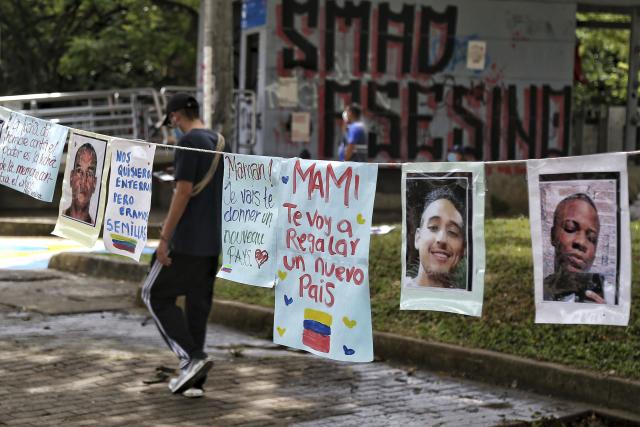Concern grows over militarized response of Colombian government to ongoing national strike

Since April 28, thousands of Colombians have joined street protests. The response of the Colombian government has been to violently repress the largely peaceful protests.
Between April 28 and May 7, 47 protestors have been assassinated, 963 arbitarily detained, 12 sexually assaulted, 548 have disappeared, 278 were assaulted by police, and 1,876 violent incidents occurred (source: Indepaz - The Institute for Development and Peace Studies).
Partners of The United Church of Canada have expressed their deep concern about the police violence against largely peaceful protests. Many of those raising their voices in legitimate, peaceful protest are young people. As part of their ministry, Colombian Methodist pastors are accompanying young adults striking in Cali, one of the centres of protest and police violence. The Methodist Church of Colombia (IMC) has affirmed the right of the multitudes of people who are going out into the streets peacefully, stating that they have every constitutional right to do so. The IMC conceives “almost as our own, the heartbreaking cry of the crowds demanding justice in peaceful street marches…who from an awareness of just change for all and everyone, raise their voices to make known an absence of [fundamental] rights not only in existence but in quality….” Another partner, the World Student Christian Federation, has urgently called on the Colombian government to guarantee the safety of all protestors and ensure the appropriate investigation by the Colombian justice system
The United Church of Canada has written to Minister of Foreign Affairs Marc Garneau to urge the Canadian government to
- take immediate steps to exert diplomatic pressure so police repression and violence against protestors end immediately.
- press its Colombian counterpart to convene an authentic and transparent dialogue with the diverse voices organizing the national strikes in order to address the root causes of the protests.
- centre its relationship with Colombia on a “whole of government” approach that foregrounds the human rights emergency and the peace process at its core. Canada’s sale of light armoured vehicles and armoured personnel vehicles to Colombia regardless of their intended use is deeply concerning. Ongoing Canadian trade and investment risk are contributing to a human rights situation characterized by repression and violence.
While the initial impetus for the protest was the Colombian government’s tax reform bill, the root causes of the protests include
- tax, labour, and health reform measures announced by the government that will deepen existing inequities and impoverishment and are not based on the daily reality of a majority of Colombians.
- the complicit silence on the part of the government regarding the repeated massacres and assassinations of women and men from labour and social organizations, youth leaders, and human rights defenders. In 2021 alone 60 social leaders and human rights defenders have been killed. Since the signing of the Peace Accords, 1,088 social and human rights leaders have been killed.
- lack of fulfillment of previous agreements regarding various Indigenous land rights.
- official opposition and apathy at the highest levels that has led to a systematic dismantling and delegitimization of the 2016 Peace Accords.
Downloads
- Letter to Minister Garneau on Colombia (May 2021) (148.21 KB) (PDF)